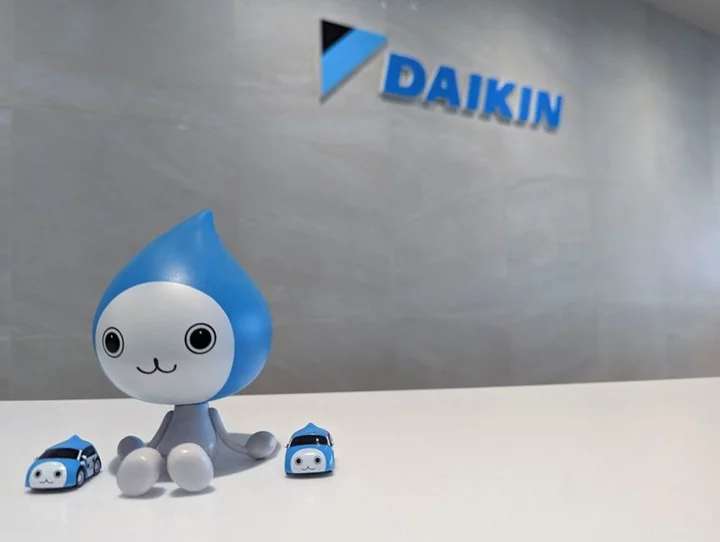By Sam Nussey and Miho Uranaka
TOKYO Japanese air conditioner maker Daikin Industries is turning to custom-made semiconductors to eke out energy savings, as companies increasingly look to bespoke chip designs to enhance performance.
As tech heavyweights such as Apple and Amazon spend heavily on custom cutting-edge chips, companies using legacy chips are also looking to introduce custom silicon.
Osaka-headquartered Daikin, which expects to make 10 million home air conditioners in the current financial year, said it is partnering with a Japanese design company to customise logic chips for inverters used in its air conditioners.
Inverters adjust the speed of an air conditioner's motor to save energy. They are standard in Japan and the European Union but less common in the United States.
The custom chips, to be made by Taiwan's TSMC, cost more than off-the-shelf alternatives but offer better energy efficiency and allow a reduction in the use of other components, according to a Daikin executive.
"To bring out the full performance of an air conditioner's compressor and motor, we need to improve chip performance or we will hit a limit," Yuji Yoneda, general manger of Daikin's technology and innovation centre, said in an interview.
Daikin plans to start introducing the chips in high-end air conditioners from 2025 and is looking at using them in about a fifth of units by the end of the decade.
The company, which developed Japan's first packaged air conditioner in 1951, is also working on customised power modules, which help manage the air conditioner's electricity supply.
Daikin has been hiring engineers from the chip industry to work on customisation while grappling with competition due to a stream of investment in the domestic semiconductor industry.
Daikin hopes an increased focus on energy efficiency will be a tailwind for the company. The number of air conditioners globally is expected to more than triple to 5.6 billion units by 2050, according to the International Energy Agency.
(Reporting by Sam Nussey; Editing by Jamie Freed)

